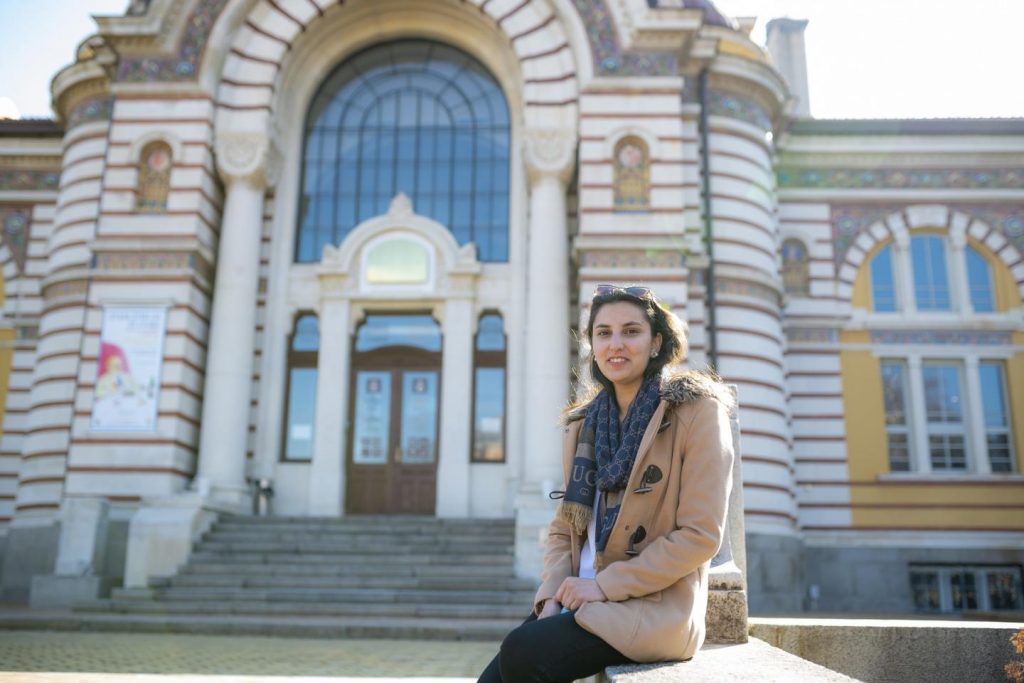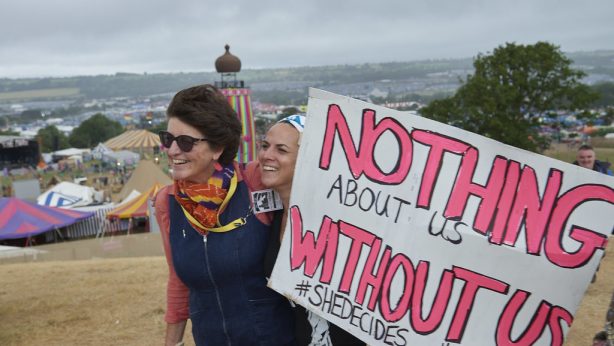From Afghanistan to Bulgaria: Finding Purpose in Displacement

I arrived in Bulgaria as a refugee from Afghanistan seven years ago, at the age of 20. Since then, l have not only had my own task of adapting and assimilating to my host country – but have also been working towards making this society more welcoming to other refugees that arrive.
My journey was a little different from the dominant “refugee story” you tend to hear. For one, I came to Bulgaria. And that was with a visa and the intention of staying here – not just using this “transit country” as a stepping stone to get elsewhere in Europe…
As for what finally pushed me to leave Afghanistan, I was working as a TV and radio presenter at the time. This meant that I had received threats pushing me to leave my job – under the pretense that, as a woman, I should not be seen on TV. My uncle was already living in Bulgaria so he helped me to get a visa and come to a safer place.
But of course, it’s never that easy. My first days and weeks in Bulgaria came with the depression and sense of hopelessness that can come with job-hunting and all the rejections and disappointments. Not to mention the looks I got from people checking my documents and papers… as though simply existing as a refugee – not to mention trying my best to survive and be a responsible, productive member of society – meant I couldn’t be trusted.
After one year and a half, I found work at a local NGO, Caritas Sofia, where I helped other newly arrived refugees to find jobs. Of course, I could naturally empathise with the individuals I was helping, which ignited the passion I had for my work. The refugees I helped had hope and trusted me to help them as being in a country as a refugee and without a job was difficult.
As a result, my motivation to this day is to help people – no matter who they are, where they are, or where they came from. This is what I’ve found gives me purpose; l can give someone else hope and take away their pain, the job has been fulfilling.
After some years passed and 2020 came around, UNHCR Bulgaria established the country’s first Refugee Advisory Board and l have been a member ever since its inception, continuing this calling I feel to help others who are still living through the difficulties that I once struggled with – and still to some extent still do. We are now in the process of registering it to become an independent NGO and work within different fields.
That same year, I also became a member of the network ARENE (Afghan Refugees Expert Networks in Europe). This network aims to bring together groups of Afghanistan’s living and working in different countries across Europe.
I am now also a member of Afghanistan Youth Leaders Assembly (AYLA) – a group of knowledgeable and active emerging leaders and experts that have worked with many and different remarkable projects that bright changes in the community – and New Women Connectors – a movement striving for mainstreaming the unheard voices of migrant, Stateless and refugee women living across Europe.
It can surprise people that I chose to settle in my first host country of Bulgaria. South-Eastern European and Central Asian countries are commonly seen as “transit countries” – a first base for refugees like myself in their long-term quest to find a more long-term home in western Europe or North America. But I have found a home here. Bulgaria is a very beautiful country but admittedly, the economy is poor.
There are many NGOs and institutes set up to support refugees here, but it is not enough because the budget for everything is little. It is also a very difficult country to live in long-term as a refugee, from the completely new language, to the stigma that refugees like myself still have among citizens – though I’m not sure any host country is completely free of that!
Life is never easy as a refugee or immigrant. You are always watched and everything you do can impact how welcome you feel – or even your permission to stay.
Life is never easy as a refugee or immigrant. You are always watched and everything you do can impact how welcome you feel – or even your permission to stay. We do not have the freedom that citizens have. We cannot speak in our own language in public or dress as we feel most culturally authentic unless we don’t mind being looked at as different; separate.
In truth, we are different, we do not completely belong to the place where we live as this wasn’t a place we grew up in or chose to call home – and consequently, every day is a constant reminder of our refugee status.
No one wants to be a refugee. No one wakes up and chooses to be in this situation. We leave our homes because our lives would be in danger. Many leave their homes, jobs, and lives to seek refugee and safe haven. We need to work together; We need to help each other no matter what.
Silsila Mahboub
Silsila Mahboub is a young Afghan refugee activist now living in Bulgaria. She is a member of several organisations fighting for refugee rights and wellbeing, including the UNCHR Refugee Advisory Board, Afghan Refugees Experts in Europe (ARENE), Afghan Youth Leadership Assembly (AYLA), and New Women Connectors; as well as running a clothing business, SEYAR, combining the eastern and western cultures she now calls her own.
Hear more about Silsila’s story both as a refugee herself and how she continues to help others in this situation at our next Instagram Q&A on November 24th, 5pm GMT.

